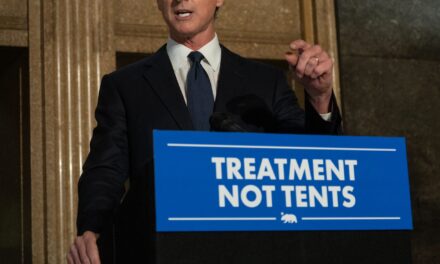SACRAMENTO–The Senate Committee Appropriations forwarded 10 bills authored by California State Assemblywoman Lorena Gonzalez (D-San Diego) to the full State Senate, advancing her efforts to bolster the earning power of working families and protect their public safety, regardless of immigration status.
The Senate’s committee on fiscal issues released from its suspense file bills that would make diapers more affordable for young families, provide California’s 400,000 farmworkers overtime after an 8-hour workday, require restaurant servers and bartenders undergo drunk driving prevention trainings, crack down on human trafficking by increasing penalties for purchasers of sex, eliminate gender bias in the state’s workers’ compensation system, improve workplace conditions through labor law education in nail salons, better protect janitors against sexual assault in workplace, notify parents about the identification of their children as English language learners, and prevent immigration deportations caused neglectful legal advice.
Under Assembly Bill 1708, California would, for the first time, treat the purchasing and selling of sex as different crimes, allowing for different penalties. This fundamental change allows a wide range of changes to be made which both improve protections for trafficking victims and create stronger deterrents for purchasers who sustain the market for sex trafficking. AB 1708 would also increase penalties for purchasers of sex who drive demand for exploitation, requiring a person who sought to procure or did procure sexual services to spend at least 72 hours in jail with flexible sentencing implementation, in addition to paying a minimum fine to fund victim services of $250 for purchasing sex with an adult to $1,000 for purchasing sex with a minor.
Beginning in 2019, AB 1066 would gradually phase in standards for farmworker overtime lowering the current 10-hour day level to the standard 8-hour day, and establishing for the first time a 40-hour standard workweek, over a four-year period. Beginning in 2019, the phase-in would be by annual half-hour-per-day increments until reaching eight hours, and annual five-hour-per-week increments until reaching 40 hours. Both final standards would be achieved in 2022. AB 1066 additionally authorizes the Governor to temporarily suspend a scheduled phase-in of overtime at any time until full implementation of phase-in overtime requirements or January 1, 2022, whichever comes first, if the Governor suspends minimum wage increases based on economic conditions.
AB 492 would offer a monthly $50 supplement per child age 2 or younger to parents enrolled in CalWORKs who also qualify for the childcare benefit. The monthly supplement would only be used on diaper purchases, helping address a major barrier to parents seeking to enter and remain in the workforce by making childcare more accessible.
The financial relief from the state’s current diaper tax found in AB 717 could save California families up to $100 per child annually, roughly equivalent to the cost of a month’s worth of diapers for infants and toddlers. Despite being a critical necessity for all young children, the state’s sales tax applies to diapers while exempting food and prescription health products. The exemption would sunset January 1, 2022.
AB 1643 would ban gender bias in California’s workers compensation system by making the impairment rating for injuries resulting from work-related breast cancer equivalent to the rating for prostate cancer. The bill also prevents doctors from taking pregnancy, menopause, osteoporosis, carpal tunnel syndrome, or psychiatric disability impairment caused by any of these conditions into account when making an apportionment decision for injuries.
AB 2121 would make responsible beverage training mandatory statewide for anyone serving alcoholic beverages. The Department of Alcoholic Beverage Control would authorize an accreditation agency to accredit responsible beverage training providers. Educating beverage servers in bars and restaurants is a key part to reducing drunk driving fatalities. Although the ABC currently has a free and voluntary program, existing training programs in California are not mandatory at the state level.
Under AB 1978, the California Department of Industrial Relations (DIR) would create sexual harassment prevention training materials and require employers to post and display a notice with information regarding the laws. DIR would also create a contractor registry which will add transparency and increase accountability, similar to garment manufacturers/contractors, farm labor contractors, and the car washing and polishing industry.
AB 813 would provide California criminal courts with a vehicle to review challenges to a conviction’s legal validity after custody has expired, potentially saving undocumented Californians from being deported if conviction of a minor crime was made when a defendant’s attorney failed to advise the defendant on the immigration consequences of their guilty plea.
AB 2025 would take several steps to educate nail salon owners on existing workplace laws in California. It will strengthen the existing licensure application process for owners to ensure education about basic labor laws relevant to their establishments, with the goal of improving voluntary compliance. It will also include workers’ rights as a subject area in the curriculum for licensed nail salon workers and require that written materials for salon workers and owners be available in English, Spanish and Vietnamese.
AB 491 would provide parents with a notification letter explaining the identification process for English learner students with their child’s initial Home Language Survey when enrolling in school. It will also guarantee parents receive vital information relating to their child’s status as a long-term English learner or at-risk English learner in their child’s annual English learner progress notification letter. Currently there is no state or federal requirement to notify parents regarding their children who are long-term English learners or who are at risk of becoming long-term English learners.
All aforementioned bills are eligible to be taken up on the Senate floor next week.



